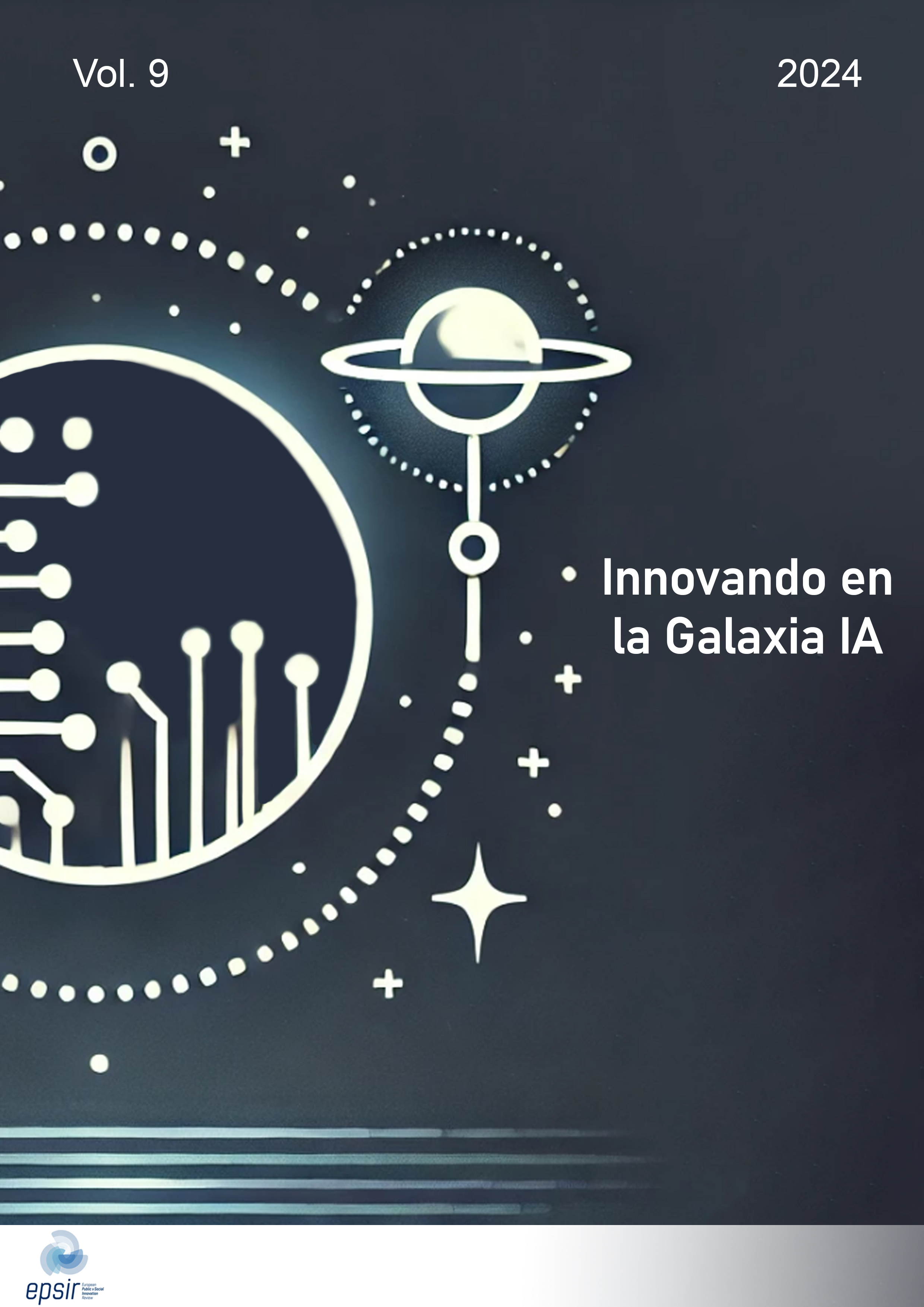Innovating in the Galaxy of Artificial Intelligence
DOI:
https://doi.org/10.31637/epsir-2024-1747Keywords:
Artificial Intelligence, Generative AI, Personalized education, Student perception, Educational innovationAbstract
Innovating in the Galaxy of Artificial Intelligence explores how AI is transforming various sectors, with a particular focus on education. From optimizing processes and personalizing experiences to creating content and improving user interactions, AI is opening new technological frontiers. In education, AI integration is reshaping teaching and learning, particularly through adaptive learning tools and generative applications. This monograph gathers research that examines AI's role in enhancing higher education, supporting creative thinking, and aiding in the creation of personalized educational content. A key area of interest is how AI can assist educators in lesson planning, content creation, and student evaluation. The use of generative AI to automate educational material production, allowing for more direct interaction between teachers and students, is also a focal point. The monograph invites studies that highlight both the benefits and challenges of incorporating AI tools in educational settings, from both technical and pedagogical perspectives.
Downloads
References
Bernate, J. A., & Fonseca, I. P. (2023). Impacto de las Tecnologías de Información y Comunicación en la educación del siglo XXI: Revisión bibliométrica. Revista de ciencias sociales, 29(1), 227-242. https://dialnet.unirioja.es/servlet/articulo?codigo=8822438
De la Rosa Martín, T., Valdivia, Z. Z. G., & Lincango, R. J. A. (2021). Mapa conceptual interactivo para la enseñanza de la Programación Lógica y Prolog de la asignatura Inteligencia Artificial. Revista Metropolitana de Ciencias Aplicadas, 4(2), 136-147. https://doi.org/10.62452/0ys65329 DOI: https://doi.org/10.62452/0ys65329
Ochoa valle, M., Espinoza Benavidez, P. N., Vargas Pérez, C. V., & Vargas Pérez, R. A. (2019). Inteligencia artificial como recursos educativos abiertos. Revista Tecnológica Ciencia Y Educación Edwards Deming, 3(1), 36-49. https://doi.org/10.37957/ed.v3i2.18 DOI: https://doi.org/10.37957/ed.v3i2.18
Ronquillo, K. K. M., Pérez, L. D. R. P., Veloz, J. F. A., & Solís, R. L. F. (2023). La inteligencia artificial aplicada en la innovación educativa en el proceso de enseñanza y aprendizaje: Artificial intelligence applied to educational innovation in the teaching and learning process. LATAM Revista Latinoamericana de Ciencias Sociales y Humanidades, 4(2), 1597-1613. https://doi.org/10.56712/latam.v4i2.706 DOI: https://doi.org/10.56712/latam.v4i2.706
Vera, F. (2023). Integración de la Inteligencia Artificial en la Educación superior: Desafíos y oportunidades. Transformar, 4(1), 17-34. https://www.revistatransformar.cl/index.php/transformar/article/view/84

Downloads
Published
How to Cite
Issue
Section
License
Copyright (c) 2024 María Santamarina Sancho , Concepción Parra Meroño , Emma Torres Romay

This work is licensed under a Creative Commons Attribution-NonCommercial-NoDerivatives 4.0 International License.
Authors who publish with this journal agree to the following terms:- Authors retain copyright and grant the journal right of first publication with the work simultaneously licensed under Creative Commons Non Commercial, No Derivatives Attribution 4.0. International (CC BY-NC-ND 4.0.), that allows others to share the work with an acknowledgement of the work's authorship and initial publication in this journal.
- Authors are able to enter into separate, additional contractual arrangements for the non-exclusive distribution of the journal's published version of the work (e.g., post it to an institutional repository or publish it in a book), with an acknowledgement of its initial publication in this journal.
- Authors are permitted and encouraged to post their work online (e.g., in institutional repositories or on their website) prior to and during the submission process, as it can lead to productive exchanges, as well as earlier and greater citation of published work (See The Effect of Open Access).


